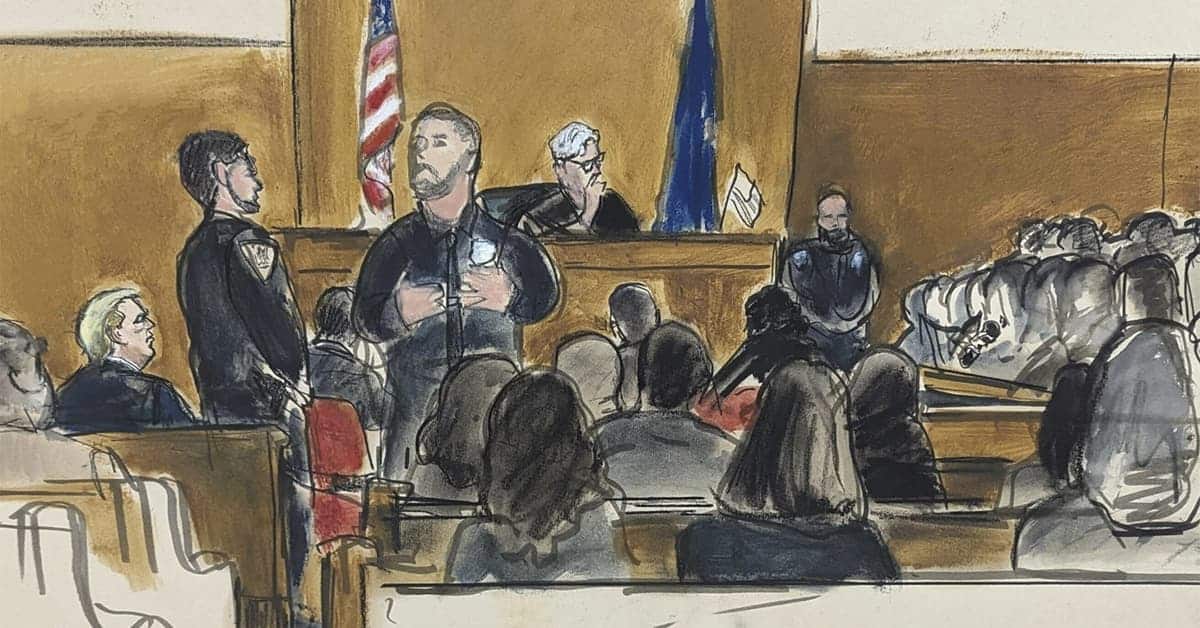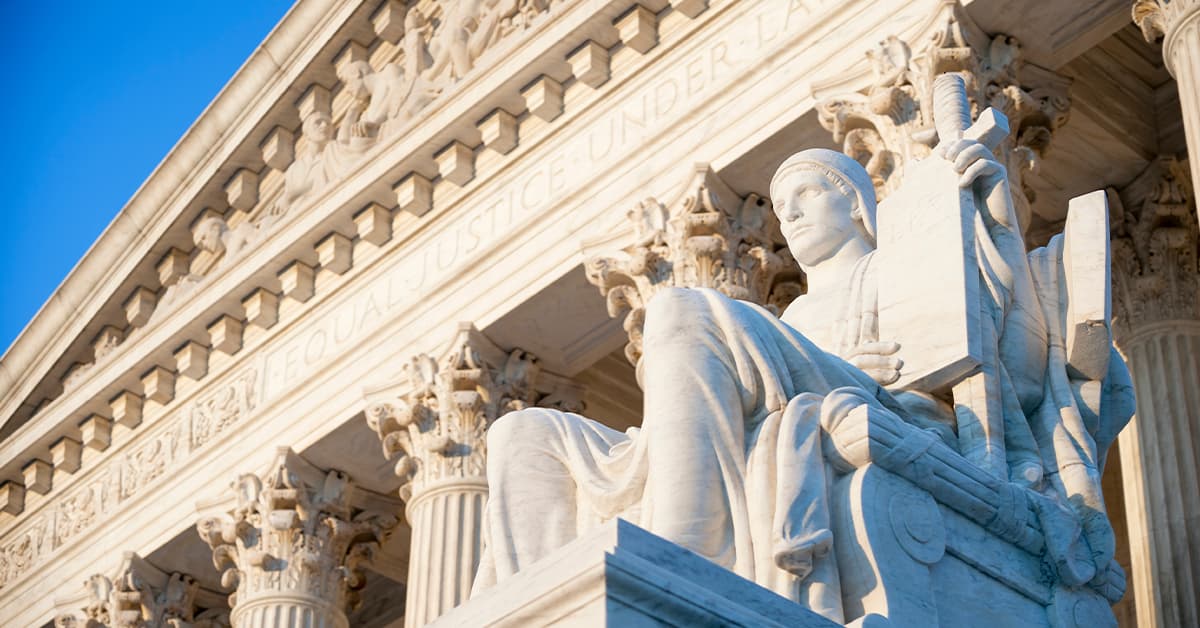By now, the whole world knows that the first defense against a conspiracy is to accuse your attacker of being a conspiracy theorist. That strategy seems to have been invented by professional conspirators at the CIA, or so the story goes – in reality, this is much older than that. Projection means we always accuse others of what we secretly accuse ourselves of. That can seem painful to look at, but it is true nevertheless. Also, we were reminded in the course of the spat between Peter Breggin and Mattias Desmet that a conspiracy is not necessarily about a couple of cigar-chomping conspirators cooking up an evil scheme in secret in some smoke-filled back room. All it means is that two or more parties cook up a plan at the expense of another party or a group. For the rest, it is always the blame of blackjack as nobody ever likes to be responsible, and the first instinct is always to blame someone or something else, but when you point the finger, there are three pointing back at you.
My own perspective on these things is rooted solidly in the psychological framework of A Course in Miracles, which in turn rests on Freudian concepts that have been falling out of fashion lately. The big difference between the two is that in the Freudian perspective, when you get done peeling the layers of the onion through the psychoanalytic process, you essentially end up with nothing except fewer conflicts and, therefore, presumably a more peaceful life. Within the framework of A Course in Miracles (abbreviated ACIM, and often referred to as simply “the Course”), when you get to the bottom layers of the onion, you encounter first the fear of God and beyond that is the love of God, quite in the spirit of the story of the prodigal son coming home, and finding that daddy is not angry, daddy loves him.
This fundamental issue was demonstrated to me early on by a friend who studied psychology in Amsterdam, and in a class on Freud, he asked his professor essentially what was the point of peeling the onion if inside there was nothing? Freud ended up in that position because he saw himself as an atheist. Shortly after my friend’s class discussion on the peeling of the onion, his professor of Freudian psychoanalysis jumped out of an upper-floor window and killed himself. The Freudian position is conducive to that kind of depression if you really believe that inside of the onion is nothing, emptiness. ACIM would identify that fear of nothingness, oblivion, as the fear of God, for the individual consciousness sees the divine embrace as its own demise. It literally fears dissolution into emptiness, for unconditional love has no place for a separate consciousness.
There is no choice where every end is sure. ²Perhaps you would prefer to try them all, before you really learn they are but one. ³The roads this world can offer seem to be quite large in number, but the time must come when everyone begins to see how like they are to one another. ⁴Men have died on seeing this, because they saw no way except the pathways offered by the world. ⁵And learning they led nowhere, lost their hope. ⁶And yet, this was the time they could have learned their greatest lesson. ⁷All must reach this point, and go beyond it. ⁸It is true indeed; there is no choice at all within the world. ⁹But this is not the lesson in itself. ¹⁰The lesson has a purpose, and in this, you come to understand what it is for. (ACIM, T-31.IV.3:1-10)
The fundamental concept of ACIM is that our origin is in the oneness of Heaven, Love, or Spirit, and we think we leave it by entertaining the idea of a separate identity, but eventually, we must return as in the long run all roads lead back home, there simply is no place else to go, when we wake up from the nightmare. The final step is not oblivion but the warm embrace of God’s Love, and the end of conflict. The fundamental drama we encounter is that once we choose separation, it is as in a refraction of light: we see a world outside of ourselves made up of separate individual entities, because that is how we view ourselves, so here lies the transition from oneness, non-duality, into the duality of this universe, where we see ourselves fighting windmills, monsters in various forms.
Dr. Johnson sought to prove his point with a rock.
Skipping past a lot of detail on how the Course develops this logic, what we end up with is an experience of a world in which we see everything as individual entities, in our own image, and conflict is the ego’s argumentum ad lapidem, to tautologically attest to its own reality, quite in the mold of the famous dialogue with Bishop Berkeley in Samuel Johnson’s Life of Boswell. (An excellent summary can be found here).
After we came out of the church, we stood talking for some time together of Bishop Berkeley’s ingenious sophistry to prove the non-existence of matter, and that everything in the universe is merely ideal. I observed, that though we are satisfied his doctrine is not true, it is impossible to refute it. I never shall forget the alacrity with which Johnson answered, striking his foot with mighty force against a large stone, till he rebounded from it, ‘I refute it THUS.’ […] To me, it is not conceivable how Berkeley can be answered by pure reasoning; but I know that the nice and difficult task was to have been undertaken by one of the most luminous minds of the present age had not politicks “turned him from calm philosophy aside.” What an admirable display of subtilty, united with brilliance, might his contending with Berkeley have afforded us! How must we, when we reflect on the loss of such an intellectual feast, regret that he should be characterized as the man,
“Who born for the universe narrow’d his mind,
And to party gave up what was meant for mankind?”
The ultimate fallacy here is that the senses perceiving physical objects are themselves part of the physical universe being observed, and thus the argument is tautological. What else would we expect but that the world would consider itself real? However, the fundamental experience in duality is that by conflict, individual entities assert themselves; they attest to their own reality. That is the game. And, psychologically, we do not want to own the guilt for having left heaven, so we always project the guilt outside on people, places, things that we accuse of being the cause of our miserable experience.
The ego, individual consciousness, thinks it is somehow separate from God, its source, maintains the illusion of its own reality through conflict. By accepting the tautological reasoning without question, as Boswell did, we constantly seek to assert our own reality but see the cause in the world outside of us. The basic perceptual dichotomy then is me against the world, and that can be endlessly repeated in all the conflicts we have in our lives. This thought of separation, the ego, individual identity, or the devil, if you will, is the fundamental conspiracy against God, and it is the mother of all conspiracies, which makes the conflict real, and elevates fear and death to reality, and denies the spiritual reality that is our home.
In the world then, there is a conspiracy to believe in the reality of conflict, and we start out by blaming God for throwing us out of the Garden, and every little child learns very quickly to say, “I did not do it.” The rest of individual existence then is an attempt to have our cake and eat it too: to have our individual reality, but never to accept the blame. All children go through a phase of blaming their parents for their existence and their miserable life. The return journey starts with the idea that “there must be another way,” i.e., starting to question the reality of the conflict.
When we look at things Covid, it is very clear how the whole process is a game of blackjack, in which everyone has a stake in making sure that somebody else gets the blame. This is how the world works.
Kenneth Wapnick, Ph.D. was a clinical psychologist and the preeminent teacher of the Course (I studied with him intensively from 1991-1999, when he was located in Roscoe, NY), and before his death in 2013, he had been working on a book about Freud and Jung in the context of the Course. His view was that Jung, and perhaps psychotherapy as a whole, tended to throw out the baby with the bathwater in turning away from Freud, for Freud was laser focused on the basic conflict of the ego-self. That last book was published posthumously as Touching the Heart of God – Psychoanalysis, Psychotherapy and A Course in Miracles. In it, he posits that the Course is essentially the synthesis that never happened because of the split between Freud and Jung. And he explains the connection of the Course material to the work of Freud, and how the Course is essentially a self-study program in psychoanalysis with Jesus as the therapist.
We end up with the notion that the mind is more or less a radio receiver. Ken Wapnick’s wife, Gloria, gave a hilarious analogy for this, that we have the choice of tuning into two stations are, WGOD and WEGO, respectively, love and fear, love or murder. And again, in the Corona confusion, we can see how there was a profound abuse of fear as a way to manipulate people, but there were a few voices of sanity, who did not get caught up in the vortex of fear, such as, among others, John Ioanidis and the writers of the Great Barrington Declaration, pointing a way out of the conflict, while the world was like the proverbial herd of swine in Mark 5:9, saying to Jesus their name was legion, before sent them into a herd of swine and they ran off the edge of the cliff:
“Then Jesus asked him: What is your name? My name is Legion, he replied, for we are many.”
In short, the ego is a “conspiracy” to usurp the throne of God: “My name is legion.” It thinks there is power in numbers. Jesus thinks otherwise. Truth is true; everything else is a lie.
The primary delusion was the ego’s conspiracy of fear which led to an escalation that only made things worse as we went along, leading to a situation where the cure was worse than the disease. At an ontological level, the Course views the world as the expression of the thought of separation, and quite in the spirit of Jesus’ Biblical quote that his Kingdom is not of the world, the Course goes one step further and says the world was made as an attack on God – it is the mother of all conspiracies – the ego puts itself on the throne as our false identity. With this reasoning, the Course solves the problem of theodicy in one fell swoop, for the age-old dilemma of how could a loving God allow the Holocaust or the Great Leap Forward, or the Russian revolution, and the Corona madness, or countless other cruelties that testify to man’s inhumanity to man? Here is the quote:
The world was made as an attack on God. ²It symbolizes fear. ³And what is fear except love’s absence? ⁴Thus the world was meant to be a place where God could enter not, and where His Son could be apart from Him. ⁵Here was perception born, for knowledge could not cause such insane thoughts. ⁶But eyes deceive, and ears hear falsely. ⁷Now mistakes become quite possible, for certainty has gone. (ACIM, W-pII.3.2:1-7)

























A loving God relinquished power when He gave us free will, a terrible gift with two edges. We are responsible for how we use it. Asking Him to take it away during troubles is to reject the gift and, perhaps, fail to use ours when we shrink from resisting evil.
At one time I was there too, but after the initial shock wore off, the Course’s outlook made more sense to me, so I stuck with it 😉